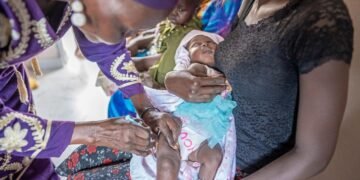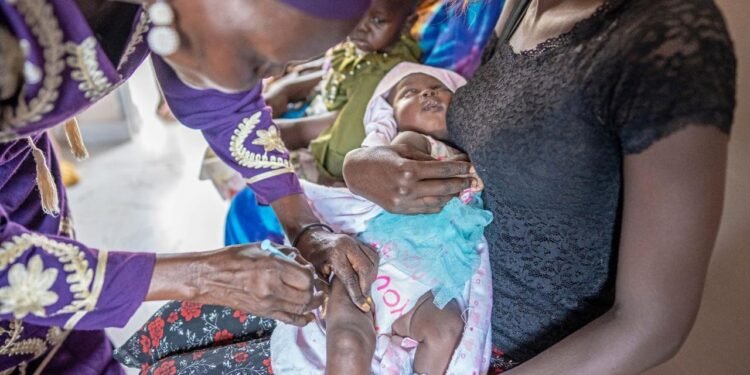South Sudan has introduced a second dose of the measles containing vaccine (MCV2) into its routine immunization schedule.
It is a major step to protect children from measles, announced Thursday in a joint statement makes South Sudan the 45th country in the African region to adopt the two-dose regimen, a 2017 recommendation by the World Health Organization (WHO).
This initiative is particularly timely as the nation faces a high risk of measles outbreaks. According to a 2025 risk assessment, nearly 90% of South Sudanese counties are categorized as high or very high risk due to low immunization coverage, weak surveillance, and the previous absence of a second vaccine dose.
The new vaccination schedule will provide children with the measles vaccine at nine and 18 months to enhance their immunity.
The Ministry of Health estimates that 567,065 children across 80 counties will be eligible for the second dose.
The rollout will prioritize reaching vulnerable populations, including those in hard-to-reach areas, displaced communities, and nomadic groups.
Health Minister Hon. Sarah Cleto Rial underscored the government’s commitment, stating, “Adding MCV2 significantly strengthens measles immunity among our children in South Sudan.”
She added that routine immunization services would be delivered through fixed posts, outreach, and mobile strategies to ensure high coverage.
The Ministry of Health, supported by Gavi-the Vaccine Alliance, WHO, and UNICEF, is driving this effort by training health workers, expanding cold chain infrastructure, and improving data systems.
Dr. Humphrey Karamagi, WHO South Sudan Representative, praised the country’s efforts, calling the MCV2 introduction “a milestone in strengthening child health.” He stressed that sustained progress would depend on continued community outreach and effective data recording.
UNICEF Representative Noala Skinner highlighted the importance of the second dose in closing a critical protection gap.
She noted that one dose does not provide full protection, especially for malnourished and displaced children.
This introduction builds on a nationwide measles follow-up campaign conducted in April 2025.
While the campaign reached 85% of its target population, only 38% of counties achieved the crucial 95% coverage needed to interrupt measles transmission.
These results underscore the ongoing immunity gaps that the second dose aims to fill.
Measles remains one of the most contagious and deadly vaccine-preventable diseases, primarily affecting children under five.
The launch of MCV2 is seen as a landmark achievement, reflecting a strong commitment to strengthening the health system and preventing future outbreaks.
The public is urged to support the initiative by promoting vaccine acceptance and ensuring all eligible children receive both doses.












